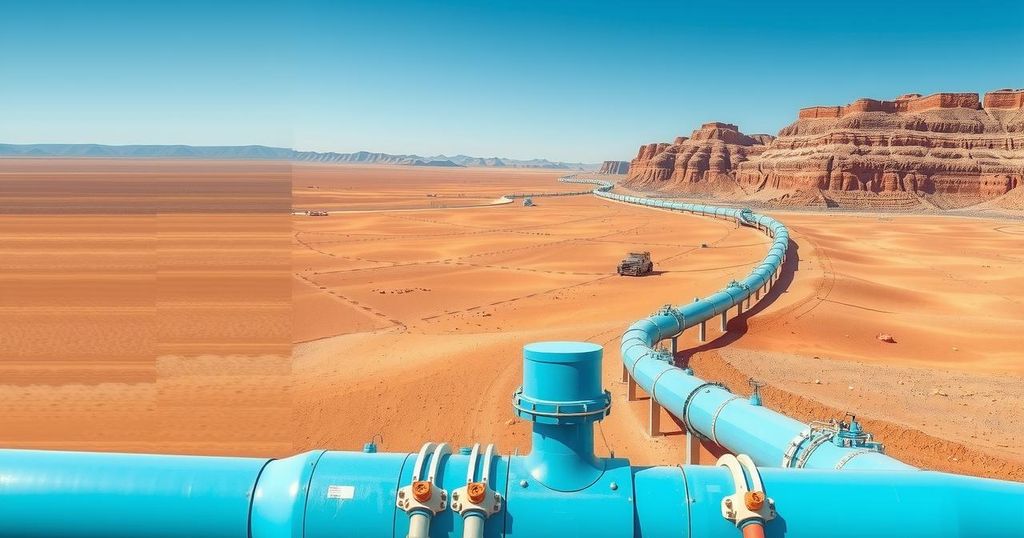Qatar is set to provide natural gas to Syria through Jordan, aiming to alleviate electricity shortages under the new regime. This agreement reflects Qatar’s intent to export gas to Europe while bolstering Syria’s electricity supply. U.S. support hints at ongoing American engagement in Syria despite political challenges.
On the heels of a tumultuous decade in the Middle East, Qatar will be supplying natural gas to Syria via Jordan. This initiative appears to address Syria’s electricity shortages while potentially aiding the new Al-Qaeda regime in Damascus. The deal is perceived as a significant endorsement of the current administration in Syria, which succeeded the ousted Bashar al-Assad, a former adversary of Qatar.
The gas supply, facilitated by an agreement between Qatar’s development fund and Jordan’s energy ministry, aims to alleviate Syria’s energy deficits. Although the arrangement purports to bolster the electricity sector, it is viewed as the first step in actualizing Qatar’s longstanding ambition to export gas to Europe
The gas will be transferred to the Deir Ali power plant, fundamentally elevating its output by 400 megawatts per day, with projections indicating a gradual increase in capacity. U.S. support for this energy deal indicates an ongoing American interest in stabilizing Syria, particularly after recent upheavals.
Currently, Syria faces extensive power shortages, having reduced electricity availability to mere hours daily. Historical importation of oil from Iran ceased, disrupting power generation capabilities. The interim government in Syria aims to secure additional electricity from Jordan while fixing its infrastructure.
Despite Jordan’s approval to provide electricity, challenges remain regarding the readiness of Syria’s internal grid and the mechanics of the financial arrangement. Recognizing this, former Jordanian energy minister Ibrahim Seif noted that significant improvements to the network were still necessary before the deal could be fully executed.
In the broader context, Qatar’s gas pipeline initiative exemplifies an alignment of Gulf Arab states, including Saudi Arabia and Qatar, to support Syria’s current authorities. While caution remains concerning U.S. sanctions impeding significant assistance, Qatar’s steps toward tangible support could signal a shift in the geopolitical balance in the region.
The recent agreement for Qatar to supply natural gas to Syria via Jordan marks a pivotal moment in Middle Eastern geopolitics, demonstrating a shift towards tangible support for Syria’s new administration. The initiative aims to address severe energy shortages, albeit amidst existing infrastructure challenges. Additionally, the U.S. endorsement of this deal underlines a continued interest in stabilizing the region, while Qatar positions itself for broader energy exports to Europe, navigating the complexities of U.S. sanctions and regional dynamics.
Original Source: oilprice.com






